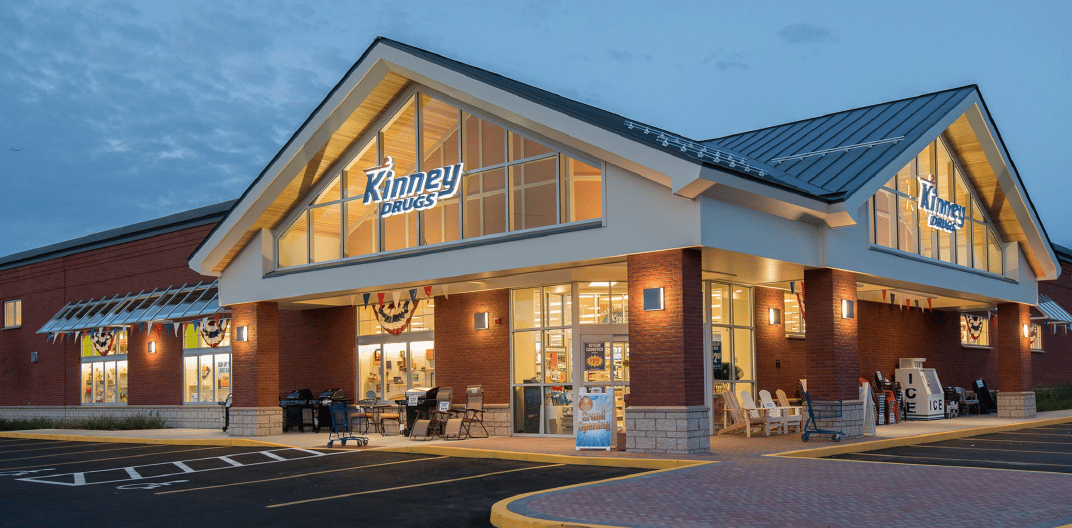🏢 Your Source for Triple Net (NNN) Investment Property Insights
Hello NNN Enthusiasts!
Welcome to Hughes CRE Insider, your FREE go-to source for the latest insights, trends, and updates in the world of Triple Net (NNN) commercial investment properties. Whether you're a seasoned commercial real estate broker or an owner/investor looking to dive into the world of NNN properties, our newsletter is tailored to provide you with valuable knowledge and resources to enhance your expertise and success in this lucrative sector.
🙏If you enjoy reading Hughes CRE Insider | Net Lease and want to show your support, please check out our advertising partners by taking a second to simply click on the links throughout our publication (no purchase or sign-up necessary). This will allow us to keep sending you FREE newsletter content straight to your inbox!
Featured Article
In the world of commercial real estate, particularly in the realm of triple net (NNN) investment properties, staying ahead of economic trends is paramount. Economic indicators act as the compass guiding brokers and property owners/investors through the dynamic landscape of the market. Understanding and analyzing these indicators can provide invaluable insights into the potential performance of NNN properties.
What Are Economic Indicators?
Economic indicators are statistics or data points that provide information about the economy's health and direction. They encompass a wide range of metrics, including employment rates, inflation levels, consumer spending habits, and GDP growth, among others. For those involved in NNN property investments, certain indicators hold particular significance due to their direct or indirect influence on property performance.
Key Indicators Impacting NNN Property Performance
1. Interest Rates:
Interest rates set by central banks play a significant role in shaping borrowing costs for investors. Lower interest rates generally stimulate real estate investment by reducing financing expenses, thus potentially increasing property demand and prices. Conversely, rising interest rates may lead to higher borrowing costs, potentially dampening property investment activity.
2. Employment Trends:
The health of the job market directly affects consumer spending and, consequently, retail property performance—a vital component of NNN investments. Low unemployment rates and steady job growth typically correlate with increased consumer confidence and retail sales, positively impacting NNN property lease renewals and rental income stability.
3. Inflation Rate:
Inflation measures the rate at which prices for goods and services rise over time. While moderate inflation is generally healthy for the economy, rapid inflation can erode purchasing power and affect property operating costs, such as property taxes, utilities, and maintenance expenses. Investors should monitor inflation trends to anticipate potential impacts on NNN property expenses and rental income.
4. Consumer Confidence:
Consumer confidence reflects consumers' optimism about the state of the economy and their financial well-being. High consumer confidence often translates to increased retail spending, benefiting NNN properties leased to retail tenants. Conversely, declining consumer confidence may signal reduced retail sales and potentially impact lease renewals and tenant stability.
5. Demographic Shifts:
Population growth, migration patterns, and demographic changes influence demand for various types of commercial properties, including NNN assets. Brokers and investors should track demographic trends to identify emerging market opportunities and tailor property investments to evolving consumer preferences and behaviors.
Utilizing Economic Indicators for Informed Decision-Making
Monitoring economic indicators provides valuable intelligence for assessing market conditions and making informed investment decisions in the NNN property sector. By staying informed of relevant economic data, brokers and investors can:
- Identify Investment Opportunities: Recognize market trends and identify sectors or geographic regions with favorable economic conditions for NNN property investments.
- Mitigate Risks: Anticipate potential economic challenges, such as rising interest rates or weakening consumer spending, and implement risk mitigation strategies to safeguard investment portfolios.
- Optimize Portfolio Performance: Adjust investment strategies and property management approaches in response to changing economic dynamics to maximize NNN property performance and long-term returns.
Conclusion
Economic indicators serve as invaluable tools for navigating the complex landscape of NNN property investments. By understanding the relationships between economic trends and property performance, brokers and investors can proactively adapt their strategies to capitalize on opportunities and mitigate risks in an ever-evolving NNN market environment.
NNN Properties Nationwide
ABSOLUTE NNN DRUG STORE FOR SALE
For Sale $6,615,000 | 5.95% Cap Rate
Outstanding investment opportunity or 1031 exchange replacement property located in one of Vermont’s most prime commercial corridors. Absolute net leased property with well established drug store/pharmacy tenant. Lease escalation in 2027. Property is 100% maintained by tenant- no Landlord responsibilities. Tenant responsible for all operating expenses, property taxes, insurance, repairs, and all required capital improvements for the property. A growing population of over 107,000 residents live within a 15-minute drive of the property, representing an average household income of approximately $106,681 annually. Contact Today for Offering Memorandum
Deal Highlights:
Tenant: KPH Healthcare Services, Inc. (Kinney Drugs)
Demised Premises: +/-11,500 sq. ft. (occupies 100% of the building)
Lease Term: 8/25/11 - 5/31/32
2023 Net Annual Rent: $393,532 per year, Triple Net
Rent Escalation: Rent increases to $432,885 per year on 8/26/27
Operating Expenses: Tenant is responsible for 100% of operating expenses, including property taxes, insurance, repairs and all capital improvements required to the building.
Tenant Annual Revenue: $1.59 Billion (Dunn & Bradstreet)
Business Type: Pharmacy, Retail Sales
Industry News Roundup
Stay up to date with the latest news and developments in the triple net (NNN) industry with our curated roundup of headlines from around the web.
-Single-Tenant Net Lease Deals Soared 26% in Q1 (Read More)
-Convenience Stores Become Destination Locations (Read More)
-Pollo Campero expanding; to more than double U.S. footprint by 2028 (Read More)
-Little Caesars plans growth in seven states (Read More)
-Dollar General Q4 tops estimates; sales fueled by food, other essentials (Read More)
NNN Tenant Profile

Tenant Description
Dollar General, a leading dollar store chain in the United States, is renowned for its extensive range of discounted products. From the perspective of net leasing, Dollar General presents an attractive option due to its competitive pricing, strong sales history, and corporate expansion strategy within a thriving market segment.
The new store model for Dollar General spans approximately 9,100 square feet on 1.00 acre of land, providing ample space for a minimum of 30 parking spaces. Situated along retail corridors with robust traffic, these Dollar General net lease properties boast high visibility and full ingress/egress, making them highly desirable for investors. The combination of higher capitalization rates and affordable price points contributes to a larger pool of qualified buyers.
All Dollar General net leases come with a corporate guarantee, and newly constructed stores typically operate under triple net (NNN) leases with initial terms of 15 years. These leases often include built-in rent increases of 10% every five years, along with extension options, making them an appealing passive investment opportunity for investors from out-of-state. Many new stores are developed through build-to-suit arrangements, further enhancing their investment appeal.

While newer Dollar General properties offer long-term, stable leases, older stores generally operate under double net (NN) leases, where the landlord assumes responsibility for roof and structural maintenance. Despite higher capitalization rates, these older stores may feature shorter lease terms, typically around 10 years.
Founded in 1939 by J.L. Turner in Kentucky, Dollar General has evolved into a publicly traded company with a diverse product selection, including consumables, seasonal items, home goods, and apparel. Characterized by their no-frills, cost-effective buildings, Dollar General stores require limited maintenance capital and boast low operating costs, enhancing their appeal to investors. Interestingly, approximately 70% of Dollar General stores are strategically located in towns with populations of 20,000 or fewer, catering to underserved markets with essential goods and services.
In summary, Dollar General's combination of competitive pricing, corporate stability, and strategic market positioning make it a compelling choice for investors seeking reliable net lease opportunities within the retail sector.
Visual of the Day

Was this email forwarded to you? Don't miss out on this valuable opportunity to elevate your knowledge and expertise in the world of NNN investment properties. Sign up for Hughes CRE Insider today and join our community of commercial real estate professionals committed to success.
To subscribe to Hughes CRE Insider and stay up-to-date with the latest NNN investment property insights, click here (Subscribe).
Thank you for choosing Hughes CRE Insider as your trusted source for Triple Net investment property news and analysis.
Best regards,
Hughes CRE Insider Team




